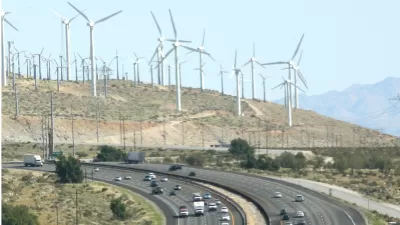Gov. Gavin Newsom signed into law a first-in-the-nation bill that would penalize California's oil refineries for excessive profits. Will it lower the state's highest-in-the-nation fuel prices?

Standing behind a podium covered by a banner stating, “Holding Big Oil Accountable” in the rotunda of the California State Capitol on March 28, Governor Gavin Newsom spoke about the bill, SBX 1-2, that he would soon sign into law. From his press release:
“With this legislation, we’re ending the oil industry’s days of operating in the shadows. California took on Big Oil and won. We’re not only protecting families, we’re also loosening the vice grip Big Oil has had on our politics for the last 100 years.”
HOW IT WORKS: Authored by Senator Nancy Skinner (D-Berkeley), co-sponsored by Attorney General Rob Bonta and approved by a supermajority in both the Senate and Assembly, SBx1-2 creates a dedicated, day-in and day-out, independent watchdog to root out price gouging by oil companies and authorizes the California Energy Commission (CEC) to create a penalty to hold the industry accountable. The law will go into effect on June 26, the 91st day after the end of the special session.
It began as a tax
As noted, the bill was introduced during a special session (explaining the 'SBX' in the bill number) that convened last fall “to confront California’s high gas prices, including his proposal to create a windfall tax on the profits of oil companies,” reported Dustin Gardiner for the San Francisco Chronicle on October 7, 2022.
“Last fall, he pivoted to calling his proposal a 'price gouging penalty,' a move with significant implications: Creating a tax requires approval from two-thirds of lawmakers, while a penalty requires only a majority,” reported Gardiner on March 27 in the source article.
Will it lower prices?
On April 2, the average price of regular grade gasoline in the Golden State was $4.83 per gallon, highest in the nation according to AAA. That's $1.33 (or 38%) higher than the national average of $3.50 per gallon, but far lower than the “$6.42 per gallon last year, a historic $2.61 more than the national average,” according to the 1-page fact sheet [pdf] on SBX 1-2.
“Critics of Newsom’s plan, including the Western States Petroleum Association and Republican legislators, say it could have the unintended consequence of driving prices up if it causes oil companies to produce less gas in California,” adds Gardiner.
The bill is less intended to lower fuel prices, largely a function of supply and demand, as it is to prevent price spikes.
A new layer of regulation
“Newsom’s plan, SBX1-2, would also give the Energy Commission more oversight authority to require oil refiners to share information about their transactions and business practices, including subpoena power,” adds Gardiner.
Legislators and Newsom have pushed industry executives in recent months — to no avail — to release more information about the causes of gas price spikes in California last year, which came as the companies brought in record profits.
Newsom victory
“The [oil] industry has been fairly successful in staving off efforts by politicians to regulate its operations," opined Dan Walters for CalMatters on March 22.
Last year, Newsom and the Legislature placed restrictions on oil wells near schools and homes but they are on hold because the industry has qualified a referendum to overturn the law for the 2024 ballot.
[See Ballotpedia: California Oil and Gas Well Regulations Referendum (2024)]
Laurel Rosenhall, Sacramento bureau chief for the Los Angeles Times, observed on March 30 the political implications of the bill's unusually rapid passage, writing that “the new law still gives Newsom a political victory over the oil industry, allowing him to position himself as a cutting-edge leader who scored a win against a politically powerful industry that many progressives view as a bogeyman.”
Planetizen has extensively covered the endless quest by politicians to reduce fuel prices. A sample:
- Biden Proposes Gas Tax Holiday to Reduce Gas Prices, June 30, 2022
- 'Are Gas Prices Too High?' May 29, 2022
- Waging War on High Gas Prices, April 6, 2022
- Pumping More Oil to Lower Gas Prices, March 14, 2022
- Bane of the Middle Class: Rising Gas Prices, October 25, 2011
FULL STORY: California lawmakers pass bill aimed at capping oil companies’ profits

Maui's Vacation Rental Debate Turns Ugly
Verbal attacks, misinformation campaigns and fistfights plague a high-stakes debate to convert thousands of vacation rentals into long-term housing.

Planetizen Federal Action Tracker
A weekly monitor of how Trump’s orders and actions are impacting planners and planning in America.

In Urban Planning, AI Prompting Could be the New Design Thinking
Creativity has long been key to great urban design. What if we see AI as our new creative partner?

King County Supportive Housing Program Offers Hope for Unhoused Residents
The county is taking a ‘Housing First’ approach that prioritizes getting people into housing, then offering wraparound supportive services.

Researchers Use AI to Get Clearer Picture of US Housing
Analysts are using artificial intelligence to supercharge their research by allowing them to comb through data faster. Though these AI tools can be error prone, they save time and housing researchers are optimistic about the future.

Making Shared Micromobility More Inclusive
Cities and shared mobility system operators can do more to include people with disabilities in planning and operations, per a new report.
Urban Design for Planners 1: Software Tools
This six-course series explores essential urban design concepts using open source software and equips planners with the tools they need to participate fully in the urban design process.
Planning for Universal Design
Learn the tools for implementing Universal Design in planning regulations.
planning NEXT
Appalachian Highlands Housing Partners
Mpact (founded as Rail~Volution)
City of Camden Redevelopment Agency
City of Astoria
City of Portland
City of Laramie





























